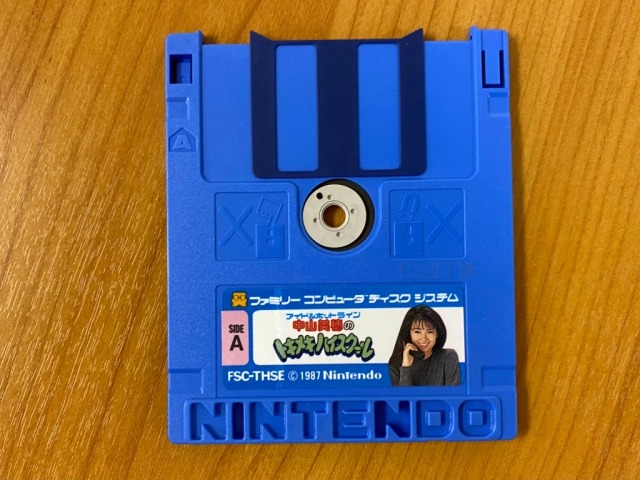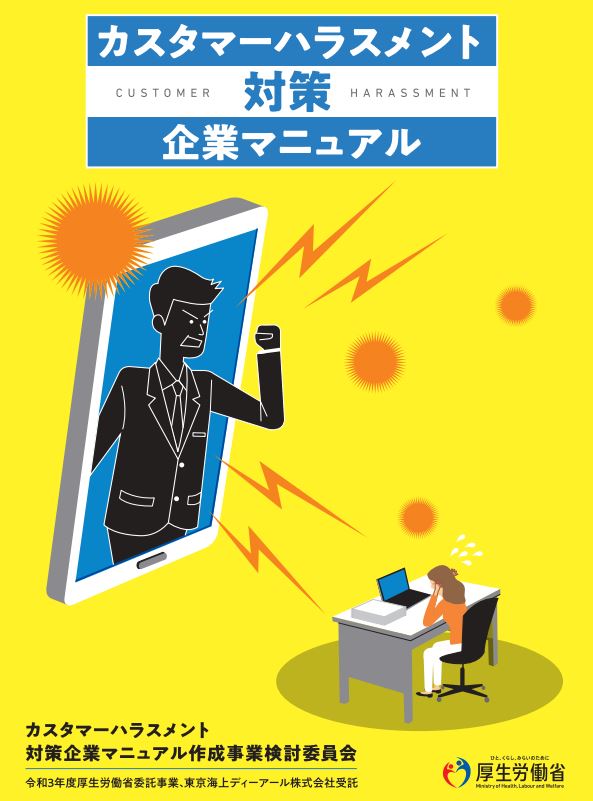
Nintendon’t take grief from customers anymore.
On 12 October, the official Twitter account of Nintendo’s Japanese customer support division – famous for its regular acts of kindness – posted a seemingly innocuous announcement.
▼ “On 19 October 2022, we will update our [Repair Service Regulations / Warranty Regulations]. Please see here for details.”
2022年10月19日に、弊社製品の「修理サービス規程/保証規程」を更新します。更新内容はこちらをご覧ください。 https://t.co/3vwf7gKvWA
— 任天堂サポート (@nintendo_cs) October 12, 2022
Unless you’re the type of person who reads all the Terms & Conditions for new apps, chances are you would have let this tweet slide by under the radar. However, upon closer inspection, there is a very interesting addition to these regulations. Under the bullet point list of updates was one that read “Added item [About Customer Harassment].”
Another link to the full repair policy reveals the customer harassment section, which states:
When making inquiries about product repairs, please refrain from engaging in behavior that goes beyond socially accepted norms (including but not limited to those listed below). If we determine that such behavior has taken place, we may refuse to repair or replace your product. Moreover, if we view the behavior as especially malicious we will contact the police and lawyers in order to take the appropriate measures in response to it.
– Threats, intimidation, or menacing behavior
– Insults or degrading remarks
– Infringement on privacy
– Requests for service beyond social norms, such as requesting free repairs beyond what is covered by warranty
– Unreasonable demands for an apology from the company or demands to punish people
– Behavior that prolongs the time spent such as excessively repeating the same request or complaint
– Slander on social media or the Internet
In a nutshell, it says if you roll up on Nintendo customer service acting like a jerk, they will refuse whatever you wanted and in more serious cases even call the cops or stick some lawyers on you.
Also, Nintendo didn’t just pick these examples of customer harassment behavior out of thin air. It’s largely based on the wording of a manual that the Ministry of Health, Labor and Welfare put out which held a wide-reaching survey of Japanese businesses in 2020 on this topic.
▼ The official Customer Harassment Management Manual

In it, the ministry found that while power harassment and sexual harassment were still the biggest problems in the workplace, they have been seen as on the decline by survey respondents. However, customer harassment was the only form of harassment that was said to have increased over the previous three years.
Examples of customer harassment yielded from the survey is also very similar to the list of behavior that Nintendo posted, such as social media slander, threats, and taking up too much of the service rep’s time. However, there were some other forms too, such as stalking employees, excessive demands to either wear or take off a face mask, entering private offices, and demanding that employees perform a dogeza which is the Japanese word for prostrating yourself in apology.

The helpful 60-page report also outlines what kind of laws this behavior is potentially breaking such as assault and extortion and the penalties for them. Clearly, as they have in the past with diversity, Nintendo is wasting little time adapting to these new guidelines for the sake of their employees’ mental well-being.
It’s certainly a departure from the traditional Japanese business axiom that “the customer is god” to flat out call them on their BS and deny service. But whenever it gets to the point of making human sacrifices to appease angry gods, it’s generally a good time to change religions.
Source: Twitter/@nintendo_cs, Nintendo Japan, Ministry of Health, Labor and Welfare, J-Cast News
Top image: ©SoraNews24
● Want to hear about SoraNews24’s latest articles as soon as they’re published? Follow us on Facebook and Twitter!

 Nintendo’s god-tier customer service continues as they offer free repairs for Noto earthquake victims
Nintendo’s god-tier customer service continues as they offer free repairs for Noto earthquake victims Government survey finds teleworking at least once per week raises Japanese worker happiness level
Government survey finds teleworking at least once per week raises Japanese worker happiness level Survey by Japanese ministry reveals high rates of “maternity harassment” in workplace
Survey by Japanese ministry reveals high rates of “maternity harassment” in workplace NHK bill collector arrested for kissing woman on the job: “I thought we were hitting it off!”
NHK bill collector arrested for kissing woman on the job: “I thought we were hitting it off!” Nintendo announces moratorium on Wii U repairs, which ends hardware support for two gens of games
Nintendo announces moratorium on Wii U repairs, which ends hardware support for two gens of games How to order snacks on a Shinkansen bullet train in Japan
How to order snacks on a Shinkansen bullet train in Japan New Nintendo Lego kit is a beautiful piece of moving pixel art of Mario and Yoshi【Photos】
New Nintendo Lego kit is a beautiful piece of moving pixel art of Mario and Yoshi【Photos】 Demon Slayer: Kimetsu no Yaiba gets new roller coaster attractions and food at Universal Studios Japan
Demon Slayer: Kimetsu no Yaiba gets new roller coaster attractions and food at Universal Studios Japan New samurai glasses are Japan’s latest weird must-have souvenir
New samurai glasses are Japan’s latest weird must-have souvenir Finally! Nintendo Japan expands Switch 8-bit controller sales to everybody, Online member or not
Finally! Nintendo Japan expands Switch 8-bit controller sales to everybody, Online member or not Apartment in Japan explodes following bizarre series of events【Video】
Apartment in Japan explodes following bizarre series of events【Video】 McDonald’s adds a new Cheese Bacon Potato Pie to its menu in Japan for a limited time
McDonald’s adds a new Cheese Bacon Potato Pie to its menu in Japan for a limited time Nintendo history you can feel – Super NES, N64, and GameCube controllers become capsule toys
Nintendo history you can feel – Super NES, N64, and GameCube controllers become capsule toys Tokyo Station’s perfect breakfast spot might just be this izakaya Japanese-style pub
Tokyo Station’s perfect breakfast spot might just be this izakaya Japanese-style pub High-fashion Totoro cuddle purse is like an elegant stroll in the forest【Photos】
High-fashion Totoro cuddle purse is like an elegant stroll in the forest【Photos】 Hello, cosmetics! Clinique teams up with Hello Kitty this summer for first-time collaboration
Hello, cosmetics! Clinique teams up with Hello Kitty this summer for first-time collaboration “The most Delicious Cup Noodle in history” – Japan’s French Cup Noodle wins our heart【Taste test】
“The most Delicious Cup Noodle in history” – Japan’s French Cup Noodle wins our heart【Taste test】 Starbucks releases a cute Frappuccino and Unicorn Cake…but not in Japan
Starbucks releases a cute Frappuccino and Unicorn Cake…but not in Japan Kyoto Tower mascot termination reveals dark side behind cute Japanese characters
Kyoto Tower mascot termination reveals dark side behind cute Japanese characters McDonald’s Japan’s Soft Twist Tower: A phantom ice cream only sold at select branches
McDonald’s Japan’s Soft Twist Tower: A phantom ice cream only sold at select branches Yabai Ramen: What makes this Japanese ramen so dangerous?
Yabai Ramen: What makes this Japanese ramen so dangerous? Japanese government wants to build luxury resorts in all national parks for foreign tourists
Japanese government wants to build luxury resorts in all national parks for foreign tourists To combat declining birth rate, Japan to begin offering “Breeding Visas” to foreigners
To combat declining birth rate, Japan to begin offering “Breeding Visas” to foreigners 10 things you should buy at 7-Eleven in Japan
10 things you should buy at 7-Eleven in Japan Studio Ghibli releases anime heroine cosplay dresses that are super comfy to wear
Studio Ghibli releases anime heroine cosplay dresses that are super comfy to wear Woman charged for driving suitcase without a license in Osaka
Woman charged for driving suitcase without a license in Osaka Studio Ghibli unveils My Neighbour Totoro miniature house model
Studio Ghibli unveils My Neighbour Totoro miniature house model Kyoto experiencing problems with foreign tourists not paying for bus fares, but not on purpose
Kyoto experiencing problems with foreign tourists not paying for bus fares, but not on purpose Fighting mild hunger with a Japanese soda that turns into jelly in the stomach【Taste test】
Fighting mild hunger with a Japanese soda that turns into jelly in the stomach【Taste test】 Studio Ghibli’s Howl’s Moving Castle tapestry unveiled in Japan for first time
Studio Ghibli’s Howl’s Moving Castle tapestry unveiled in Japan for first time McDonald’s new Happy Meals offer up cute and practical Sanrio lifestyle goods
McDonald’s new Happy Meals offer up cute and practical Sanrio lifestyle goods Sales of Japan’s most convenient train ticket/shopping payment cards suspended indefinitely
Sales of Japan’s most convenient train ticket/shopping payment cards suspended indefinitely Sold-out Studio Ghibli desktop humidifiers are back so Totoro can help you through the dry season
Sold-out Studio Ghibli desktop humidifiers are back so Totoro can help you through the dry season Japanese government to make first change to romanization spelling rules since the 1950s
Japanese government to make first change to romanization spelling rules since the 1950s Foreigner’s request for help in Tokyo makes us sad for the state of society
Foreigner’s request for help in Tokyo makes us sad for the state of society Ghibli founders Toshio Suzuki and Hayao Miyazaki contribute to Japanese whisky Totoro label design
Ghibli founders Toshio Suzuki and Hayao Miyazaki contribute to Japanese whisky Totoro label design Doraemon found buried at sea as scene from 1993 anime becomes real life【Photos】
Doraemon found buried at sea as scene from 1993 anime becomes real life【Photos】 Tokyo’s most famous Starbucks is closed
Tokyo’s most famous Starbucks is closed Princesses, fruits, and blacksmiths: Study reveals the 30 most unusual family names in Japan
Princesses, fruits, and blacksmiths: Study reveals the 30 most unusual family names in Japan Survey reveals that secretaries in Japan say ‘no’ to these types of husband
Survey reveals that secretaries in Japan say ‘no’ to these types of husband Japanese sake brewery launches One Cup Rainbow in honour of the LGBTQ community
Japanese sake brewery launches One Cup Rainbow in honour of the LGBTQ community Scalding your subordinate with tofu – definitely not proper police procedure
Scalding your subordinate with tofu – definitely not proper police procedure Saitama senior arrested after calling telecom provider 24,000 times to complain
Saitama senior arrested after calling telecom provider 24,000 times to complain Japan’s train otaku ruin the sweet story of the lone schoolgirl and her train station
Japan’s train otaku ruin the sweet story of the lone schoolgirl and her train station “Bully insurance” now on the rise, with many more practical uses than just insuring bullying
“Bully insurance” now on the rise, with many more practical uses than just insuring bullying Government survey reveals Japanese life expectancy at highest ever, second highest in the world
Government survey reveals Japanese life expectancy at highest ever, second highest in the world Leadership does nothing despite public harassment of Tokyo Metropolitan Assembly member
Leadership does nothing despite public harassment of Tokyo Metropolitan Assembly member Nintendo’s “God-like” customer service warms hearts again, this time helping a husband in Japan
Nintendo’s “God-like” customer service warms hearts again, this time helping a husband in Japan Japan’s population of people over 100 surpasses 90,000 for first time
Japan’s population of people over 100 surpasses 90,000 for first time Petition to allow students to choose what they wear to school gathers almost 19,000 signatures
Petition to allow students to choose what they wear to school gathers almost 19,000 signatures Google Maps sent us to a forbidden exit from one of Tokyo’s major subway stations
Google Maps sent us to a forbidden exit from one of Tokyo’s major subway stations Sexual harassment poster from Japanese government draws criticism for seemingly taking men’s side
Sexual harassment poster from Japanese government draws criticism for seemingly taking men’s side High schooler “forced” to quit school sues Kumamoto prefecture for a single yen
High schooler “forced” to quit school sues Kumamoto prefecture for a single yen Japanese company’s sexual harassment seminar has a brutally honest opening exercise
Japanese company’s sexual harassment seminar has a brutally honest opening exercise
Leave a Reply